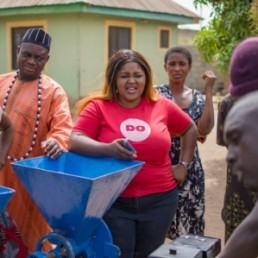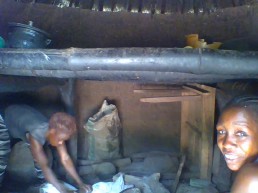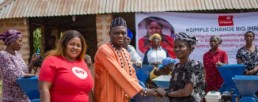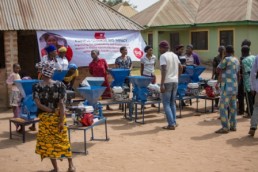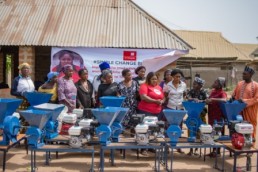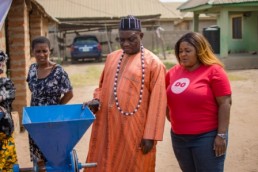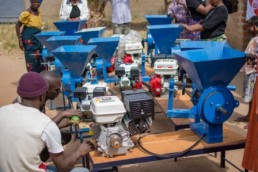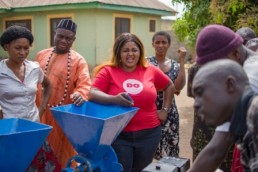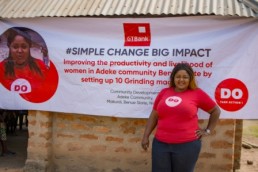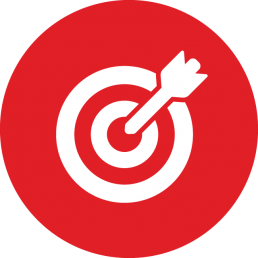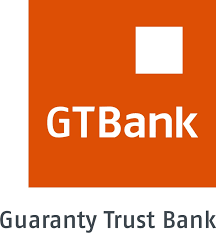THE NEED
Despite the fact that technology has greatly reduced the amount of time it takes to grind large amounts of grains, in Adeke a village in Benue state, over 3000 women spend 1-2 hours daily and over 11,000 hours cumulatively per month of their time and energy crushing maize, millet and beans flour (staple meals) using the local grinding stone, an activity that would take just 3 minutes with the use of a grinding machine. They opt for this manual option because to get to the nearest grinding mill they would have to walk for about 1 hour to 1 hour 30minutes.
Based off of the need analysis gathered from Adeke Village, we discovered that 90% of these local women are farmers and so, what this means, is that every day these women lose very valuable time that could be spent on their farmlands for increased food productivity, run their businesses and earn a sustainable income. It’s also worthy of note that 67% of the 110 local needs assessment respondents noted that poverty is the most pressing issue in the community.
EMPOWERED BY DO TAKEACTION DORATHY AKENDE'S COMMUNITY OUTREACH PROJECT, IMPROVES THE ECONOMIC PRODUCTIVITY OF 3000 WOMEN IN ADEKE COMMUNITY.
Dorothy Akende, an indigenous DO Grassroot Development Champion (GDC), saw this as a very pressing need in her community and came up with the idea of setting up grinding mills at strategic points in her community to tackle this problem. These mills were envisioned to be operated as a business and run by 4 women on behalf of the community. The vision was that with this plan in place, through the income generated by the grinding mills, more mills will be set up in more locations in a continuum until the lives of a larger number of women in Adeke community get impacted by this development.
From our calculated estimates, the provision of this infrastructure as simple or small scale as it seems will contribute majorly to reduce the physical labour, waste and time impact of grinding on the stone; and empower women and others who want to participate. Existing farmers can also expand their production of farm produce as profit margins increase and new revenue is generated from a wider market for processed products.
Working with strategic support from Guaranty Trust Bank (GTB) Bank, we were able to execute one of our flagship Community Infrastructure for Improved Livelihoods and Sustainable Development (CIILSD) projects. The mission offering of the CIILSD project is to reduce the gross inequality that rural communities suffer in access to infrastructure, economic, social and political resources. Ultimately, the delivery of these infrastructural projects is set to empower impoverished rural communities, develop a sustainable ecosystem and improve their livelihoods. These projects range from providing access to sustainable power generation and supply; clean, hygienic water sources; quality education, healthcare, better roads, bridges and drainages, peace and security and safe spaces for children and adults.
Our work is powered by the drive to inspire people, organizations and governments to take actions that will lead to the deployment of required community infrastructure that improve the livelihood of people in impoverished communities.
The Adeke CIILSD project was mapped out as a 3 months’ project to be implemented through these steps:
- Installation of 10 grinding machines in 4 strategic locations in the community. These will empower 10 women and serve over 3000 women living in Adeke Community.
- Conducting a one-day financial literacy workshop designed to empower women farmers in the community with the financial management skills they need to increase productivity and efficiency.
- Coordinating active involvement of key stakeholders in the community like the elders, youths (who actually built the mounting site where the grinding machines would be installed and operated from.) and chiefs in the execution of the project to foster responsibility and ownership of the project that can further ensure the maintenance and sustainability of the grinding mills.
IMPACT
This project increased the productivity and efficiency of over 3000 women in Adeke community, empowered selected beneficiaries with entrepreneurship and financial management skills and inspired collaboration between women, youths and stakeholders of the community in driving sustainable development.
Ultimately, this contributes to boosting the economy of the community and enables them lead a better quality of life.
Featured Partners
Some organizations and people who are contributed to the success of this project.
